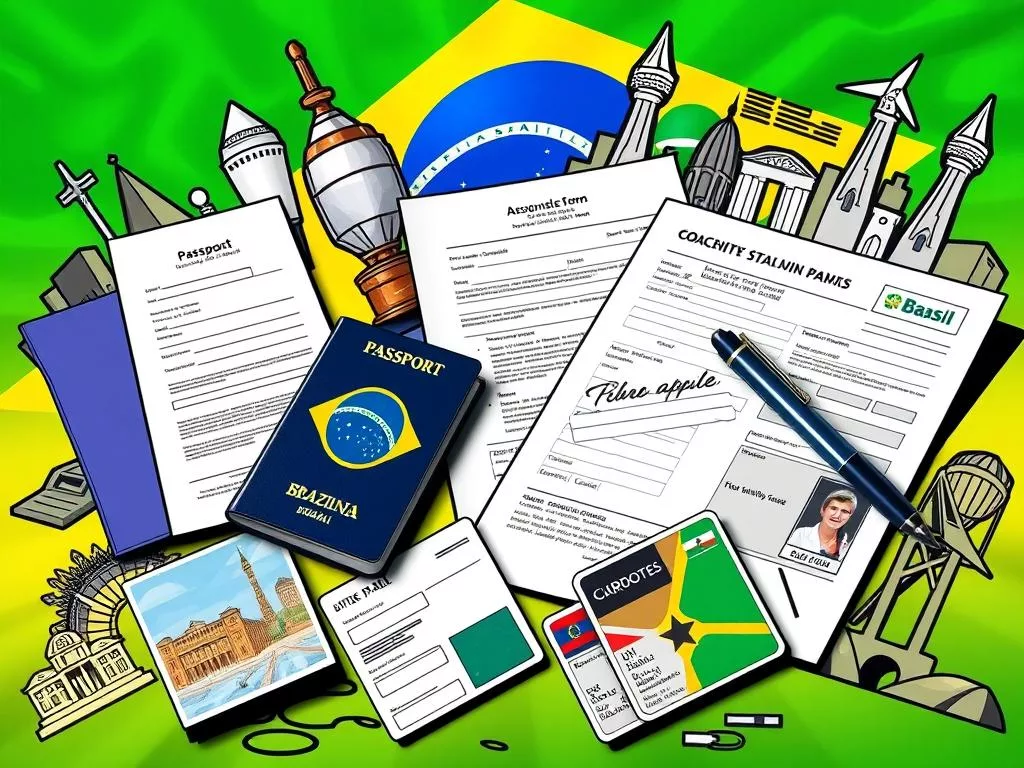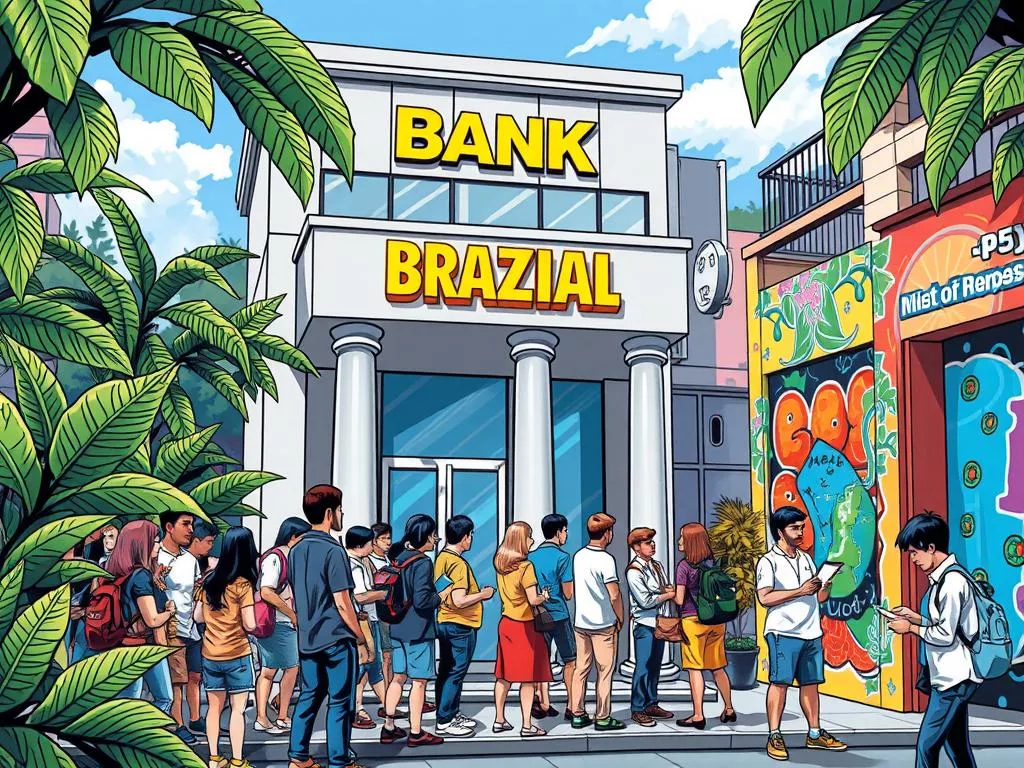Opening a bank account in Brazil is key for expats and travelers. It helps manage everyday money matters. This step-by-step guide will make the process easy. You’ll learn about the bank account needs for foreigners.
Choosing between a Checking Account (Conta Corrente) or a Savings Account (Conta Poupança) matters. The right choice affects your financial life in Brazil.
Remember, you’ll need a Brazilian Tax Identification Number, or CPF (Cadastro de Pessoas Físicas), to open an account. About 60% of foreign nationals prefer a Checking Account. Knowing your banking options helps you make smart choices.
This guide will give you all the details. You’ll learn how to pick a bank that fits your needs. Plus, you’ll understand any fees and charges.
Understanding the Requirements for Opening a Bank Account in Brazil
To open a bank account in Brazil, you need to meet certain requirements. You must gather specific documents to prove who you are and where you live. A valid passport is key, acting as a main ID for both Brazilians and foreigners.
Getting a CPF, or Cadastro de Pessoa Física, is also a must. This 11-digit number is needed for all financial dealings in Brazil. You can get it from Receita Federal offices or Brazilian consulates abroad.
The RG, or Registro Geral, is another ID you’ll need. You also have to show proof of where you live. This could be utility bills or a rental agreement. Plus, your residency visa must be valid for at least 12 months.
If you’re a student, you’ll need to show your enrollment at a Brazilian school. For a detailed list of what you need, check out this guide.
| Document | Purpose |
|---|---|
| Passport | Identity verification |
| CPF | Mandatory for financial activities |
| RG | Brazilian identification card |
| Proof of Address | Residence confirmation |
| Residency Visa | Legal status verification |

Guide to how to open a bank account in Brazil
Opening a bank account in Brazil requires a few key steps. First, you need to gather the right documents. This includes proof of who you are, where you live, and a valid ID like a passport or CPF.
For foreigners, things get a bit more complicated. They often need to find a legal representative in Brazil. This person helps with the application and makes sure all documents are correct. After submitting your documents, you’ll fill out forms with your personal and contact info.

Some banks ask for an initial deposit to start your account. The amount varies by bank. After your application is approved, you’ll get your account details. This includes your account number, branch info, and online banking login.
| Document Required | Description |
|---|---|
| Valid Government ID | Passport, national ID, or CPF for identity verification. |
| Proof of Residence | Utility bill or rental agreement in the applicant’s name. |
| Initial Deposit | Varies by bank; check specific policies. |
| Legal Representative | Required for foreigners not present in Brazil. |
By following these steps, you can open a bank account in Brazil easily. This makes managing your money there much simpler.
Choosing the Right Bank in Brazil
Brazil has many banks, each with its own services for locals and expats. Popular banks for expats include both traditional and neobanks. They meet different financial needs.
Banco do Brasil is known for its wide network and many services. Itaú Unibanco is praised for its tech solutions. Bradesco is famous for great customer service and easy access.
Caixa Econômica Federal helps low- to middle-income people with social programs. This can be very helpful for those who qualify.
Neobanks like Nubank are also popular. They offer a modern banking experience with a user-friendly app. Nubank is great for those who like managing money on their phones.
When picking a bank, consider a few things:
- Service offerings
- Fees and monthly charges
- Customer satisfaction ratings
- Account types available
By looking at these factors, you can find the best bank for you. For more help, check out this detailed guide.
Steps to Open a Bank Account in Brazil
Opening a bank account in Brazil requires several key steps. First, you need to gather important documents. These include a valid passport, a CPF, proof of address, and the RNM for foreign residents. You can get a CPF for 5.70 reais, or about US$1.60, at Federal Revenue Service offices or Brazilian consulates.
After you have your documents, choose a bank that fits your needs. Banks like Banco do Brasil and Itaú Unibanco offer a wide range of services. Digital banks like Nubank and C6 Bank are known for easy apps and no fees. Most banks let you start the application online, but you’ll need to visit in person to complete it.
If you face any issues, like language problems, getting help from a Portuguese speaker can make things easier. Also, learning about the bank’s online services and fees will help you use your account wisely. By following these steps, you can make banking in Brazil efficient and hassle-free.

